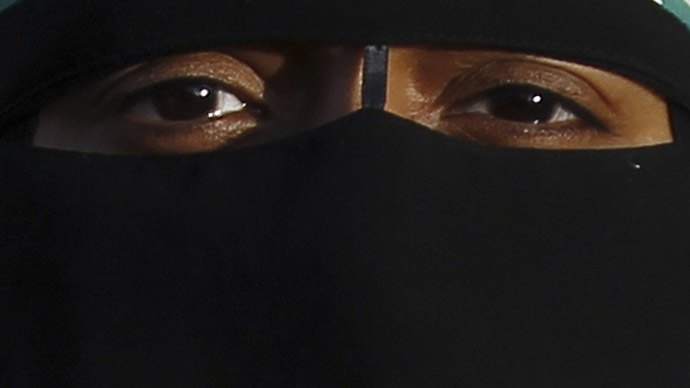Chad declares head veil crackdown after bombing by disguised Boko Haram attacker

Chadian police said they will ramp up the enforcement of last month's ban on head-to-toe hijabs after a suicide bomber dressed as a woman killed 15 people at a market in the capital N'Djamena.
The bomber believed to be a Boko Haram fighter detonated his explosives belt after being stopped for a security check at the entrance to the market. Nine of the victims of the blast were women traders. It also injured some 80 people and provoked panic in the city.
"This attack just confirms that a ban on the full-face veil was justified," national police spokesman Paul Manga said as cited by AFP. He added that "it now must be respected more than ever by the entire population".
Chad, a leading partner in a regional coalition fighting against the Boko Haram insurgency, suffered its first serious blow from the terrorists on June 15, when two coordinated bombings rocked N'Djamena, killing 33 people and injuring over 100.
READ MORE: Over 200 Nigerian women rescued from Boko Haram are pregnant – UN
Among the security measures announced in response, the country banned the hijab covering the face, saying it may disguise terrorists. The ban will now be enforced more rigorously, with anyone wearing a veil subjected to arrest on sight, Manga warned on Sunday.
The June ban came as Muslims, who comprise roughly 53 percent of the population, were celebrating the holy month of Ramadan and was a shock to some of them.
"It isn't people in burqas who commit attacks and this dress has become customary for many Chadians," Hassan Barka, a mechanic, told AFP at the time. "It is difficult to implement this decision. Maybe time is needed to spread awareness."
The influential Superior Council of Islamic Affairs criticized the decision, saying it goes against the principles of Islam.
The outcry however was mild, as Chad's Muslims are predominantly moderate Sufis and see face-covering burqas and niqabs as cultural rather than religious clothing.
Some doubted the efficiency of the ban in the long run.
"Purely and simply banning an association is no solution," said the secretary general of King Faisal University in N'Djamena, Abakar Walar Modou. "You can't halt an ideology that way, it causes frustration."
Boko Haram is a radical Islamist movement that has plagued Nigeria since 2009. The violence has claimed at least 15,000 lives, as the militants have raided villages and towns and sent suicide bombers to Christian churches and other public sites.
Nigeria's neighbors Niger, Chad, Cameroon and Benin as well as France are taking part in a joint effort to eradicate Boko Haram.












